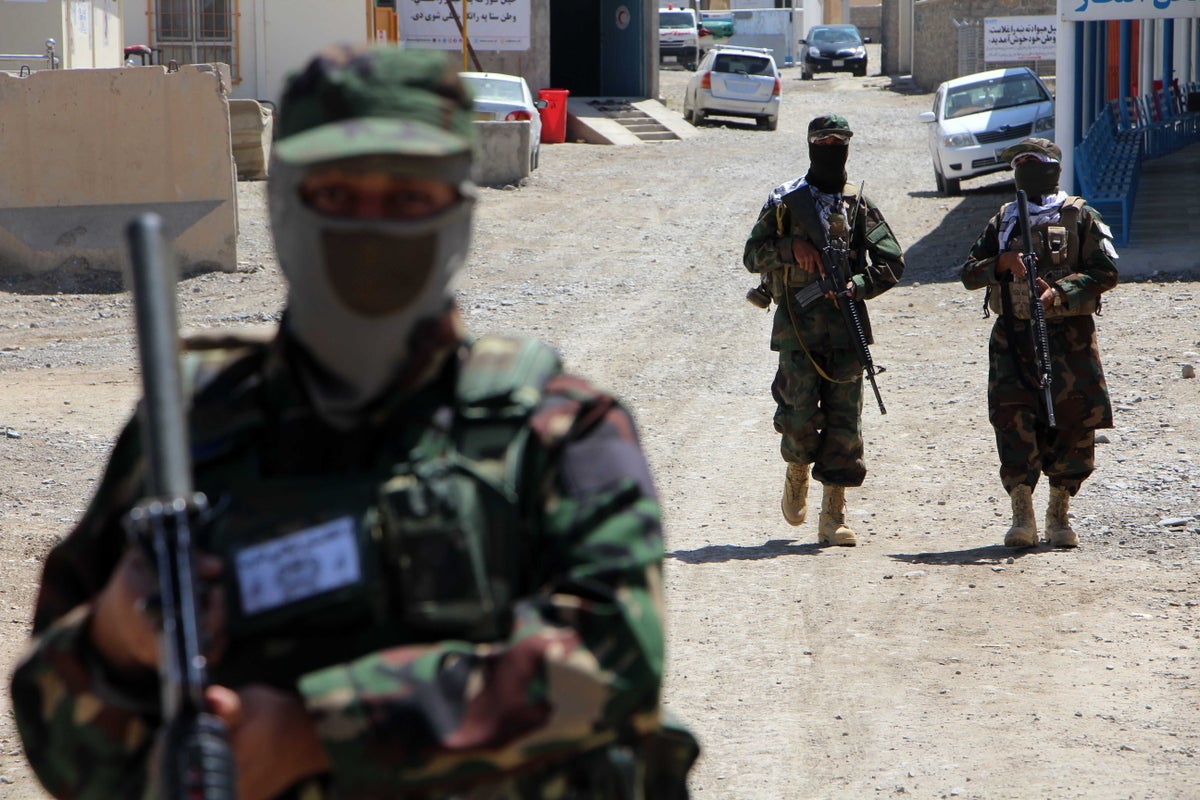
Donald Trump’s administration is pointing to an increase in tourism under Taliban-controlled Afghanistan to justify the cancellation of humanitarian protections for more than 11,000 Afghans in the United States.
On Monday, the administration announced plans to strip temporary legal status to roughly 11,700 Afghans who fled the country following the U.S. withdrawal in 2021, which led to the evacuation of tens of thousands of people in the wake of the devastating years-long war.
“This administration is returning TPS to its original temporary intent,” said Homeland Security Secretary Kristi Noem in a statement.
“We’ve reviewed the conditions in Afghanistan with our interagency partners, and they do not meet the requirements for a TPS designation,” she added. “Afghanistan has had an improved security situation, and its stabilizing economy no longer prevent [sic] them from returning to their home country.
Homeland Security’s notice to the federal government claims there have been “notable improvements” in Afghanistan’s national security, now under the control of the Taliban, and “requiring the return of Afghan nationals to Afghanistan does not pose a threat to their personal safety due to armed conflict or extraordinary and temporary conditions.”
The notice in the federal register also claims that “the Taliban government is promoting tourism to shift its global image.”
“Tourism to Afghanistan has increased, as the rates of kidnappings have reduced,” the notice added. “Tourists are sharing their experiences on social media, highlighting the peaceful countryside, welcoming locals, and the cultural heritage, according to some reports.”
More than 23 million people in the country still need critical humanitarian assistance, according to the notice. But Homeland Security points to that as a relative success, as the number of Afghans in need of humanitarian aid has declined from 29 million over the previous year.
Refugee aid and resettlement groups have blasted the administration’s decision, noting that many Afghans are now threatened with being removed from a country they risked their lives to support.
The decision to terminate TPS for Afghans “is not rooted in reality — it’s rooted in politics,” according to Shawn VanDiver, president of refugee assistance group AfghanEvac, calling the administration’s announcement “unconscionable.”
“It’s just patently obscene,” he told The Independent.
The administration is betraying Afghans “who risked their lives for America, built lives here, and believed in our promises,” he shared in a statement. “This policy change won’t make us safer — it will tear families apart, destabilize lives, and shred what’s left of our moral credibility.”
The TPS designation was opened to Afghans in 2022 after the fall of Kabul and extended in 2023. Without those protections, impacted Afghans will lose authorization to legally work in the United States and can be detained and removed from the country altogether, which could prevent them from legally entering the country for at least 10 years.
But Matthew Tragesser, chief of public affairs at U.S. Citizenship and Immigration Services, claimed that “bad actors are taking advantage” of the program.
“TPS exists for a reason: to protect people whose return to their country would place them in grave danger. Afghanistan today is still reeling from Taliban rule, economic collapse, and humanitarian disaster. Nothing about that reality has changed,” according to Krish O’Mara Vignarajah, president of refugee aid group Global Refuge.
“Terminating protections for Afghans is a morally indefensible betrayal of allies who stood shoulder-to-shoulder with us to advance American interests throughout our country’s longest war,” she added.
Ending protections for Afghan women and girls means “forcing them back to Taliban rule, where they face systemic oppression and gender-based violence, would be an utterly unconscionable stain on our nation’s reputation,” Vignarajah added.
Under the terms of a federal lawsuit trying to block the cancellation of TPS, temporary protected status for Afghans will expire May 20 and the elimination of the program takes effect July 12.
Afghans with TPS who also have a pending asylum claim or special immigrant visa case or other pending immigration case are not supposed to be impacted by the decision, though the administration’s maneuvers are unclear.
Refugee groups anticipate battling it out in court.
The lawsuit from immigrant advocacy group CASA Inc represents a man identified in court filings as A.F., an Afghan with TPS protections living in Virginia. He has an engineering degree and works as a project manager under his TPS-based work authorization, according to court documents
Without those protections, “his employer could terminate him or, at best, place him on a lengthy unpaid administrative leave as a precursor to firing him. He cannot afford either option,” the lawsuit states.
“Although he is a citizen of Afghanistan, he has never lived there and has spent only around five weeks of his life in the country, when he was a child,” according to the lawsuit. “A.F. has no immediate family in Afghanistan and no prospects of building a safe or stable life there.”
Source: independent.co.uk


